Uncategorized
-
 Physics
PhysicsPerfect fluid of electrons may flow inside superconductor
Understanding superconductors’ viscosity could help inspire scientists to find ways to improve the electric power grid.
By Andrew Grant -
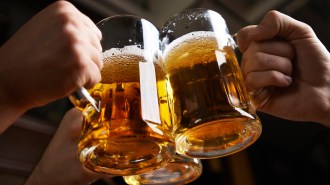 Psychology
PsychologyMajority doesn’t always rule in teen booze use
Having one abstainer as a friend cuts teens’ odds of getting drunk and binge drinking, a study finds.
By Bruce Bower -
 Physics
PhysicsComplete double rainbow encircles Australian town
A photographer in a helicopter captured a double circular rainbow while flying around a storm near Perth, Australia.
-
 Cosmology
Cosmology‘The Theory of Everything’ reveals Stephen Hawking’s personal side
A new film explores love and science in the life of physicist Stephen Hawking.
By Andrew Grant -
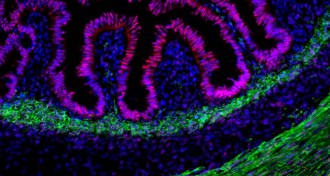 Health & Medicine
Health & MedicineTiny human intestine grown inside mouse
Human gut tissue transplanted into a mouse can grow into a working intestine that doctors could use to test disease treatments.
By Meghan Rosen -
 Planetary Science
Planetary Science‘Mars Rover Curiosity’ chronicles robot’s journey
Engineer Rob Manning recounts the decade of victories and setbacks that preceded Curiosity’s landing on Mars.
-
 Health & Medicine
Health & MedicineFeedback
Readers discuss methods to prevent sepsis and whether genes are thrifty, while Tina Saey clears up some confusion regarding Ebola's airborne status.
-
 Astronomy
AstronomyComet-crazed, and for good reason
Coming to the edge of knowledge, especially about what’s out in space, fires the imagination.
By Eva Emerson -
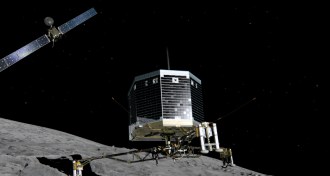 Astronomy
AstronomyRosetta readies for its close rendezvous with a comet
The Rosetta spacecraft and its lander Philae are ready to make history in a risky rendezvous with comet 67P/Churyumov-Gerasimenko.
-
 Microbes
MicrobesMicrobes can redeem themselves to fight disease
With some genetic engineering, bacteria can morph from bad to good and help attack invading cancer cells.
By Susan Gaidos -
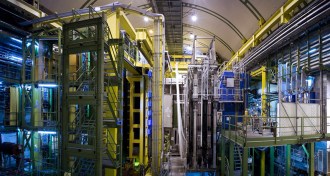 Particle Physics
Particle PhysicsNew particle could help physicists understand subatomic glue
A newfound particle will allow scientists to probe the universe’s strongest force.
By Andrew Grant -
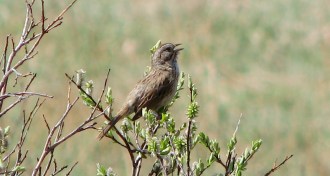 Animals
AnimalsHearing awful or great singing changes birds’ choice
A male bird’s serenade inspires reactions that depend on the quality of songs a female has been listening to.
By Susan Milius